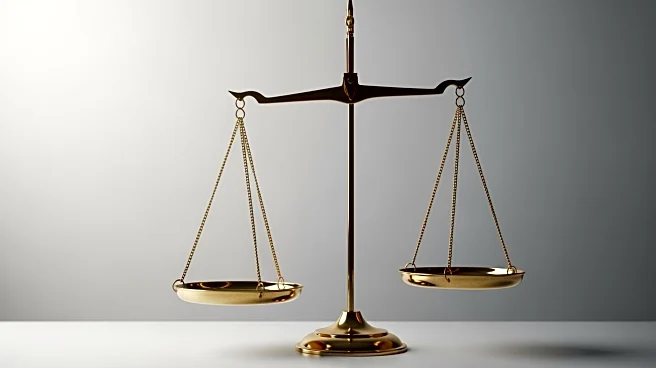What's Happening?
JBS USA has agreed to a $1.1 million settlement with New York Attorney General Letitia James following a lawsuit alleging the company misled the public about its environmental commitments. The lawsuit,
filed in 2024, accused JBS of falsely advertising plans to achieve 'net zero' greenhouse gas emissions by 2040 without having a concrete plan in place. The investigation revealed that JBS intended to increase production, which would raise its carbon footprint. The settlement funds will support climate-smart agriculture programs in New York, and JBS will reform its environmental marketing practices and report annually to the Attorney General's office for three years.
Why It's Important?
This settlement highlights the growing scrutiny on corporate environmental claims, particularly in the food industry, which is a significant contributor to greenhouse gas emissions. The case underscores the importance of transparency and accountability in corporate sustainability efforts. Companies like JBS are under pressure to align their marketing with actual environmental practices, impacting consumer trust and regulatory oversight. The settlement also reflects broader efforts to promote sustainable agriculture, which could influence industry standards and practices.
What's Next?
JBS USA will need to adhere to the terms of the settlement, including reforming its marketing practices and supporting climate-smart agriculture. The company will be monitored by the Attorney General's office for compliance. This case may prompt other companies to reassess their environmental claims and strategies to avoid similar legal challenges. The settlement could also encourage more states to take action against misleading environmental advertising, potentially leading to stricter regulations and increased corporate accountability.
Beyond the Headlines
The lawsuit against JBS USA raises ethical questions about corporate responsibility and the role of greenwashing in consumer decision-making. It highlights the need for companies to provide verifiable and transparent information about their environmental impact. This case could lead to a shift in consumer expectations, demanding more rigorous proof of sustainability from companies. It also emphasizes the legal risks associated with misleading environmental claims, potentially influencing corporate strategies and marketing practices.










